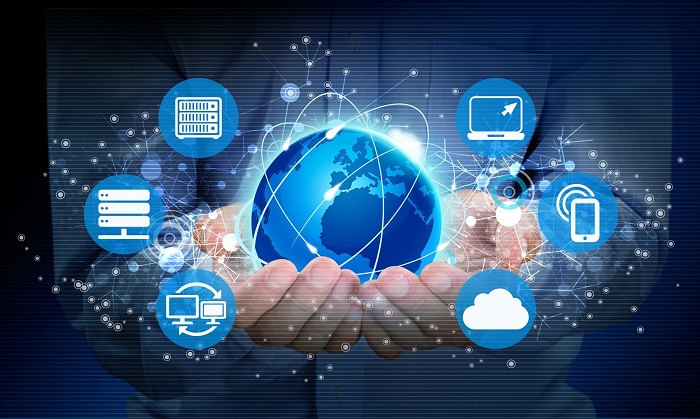How digitalization transforms Vietnam?
2019/03/28
Vietnam has experienced more than two decades of connecting to the Internet and joined the race of digital transformation around the globe.

Connected to the Internet in 1997, Vietnam has demonstrated a fast change in socio-economic development to rank itself among the 20 countries with the largest numbers of Internet users in the world.
Vietnam has witnessed a steep rise in Internet, smartphone, and social media adoption in the last decade. As one of the fastest growing economies in the region, the country is intent on maximizing the opportunities presented by the Fourth Industrial Revolution, with e-government initiatives located at the heart of the public sector reform.
On way to digitalization, through interactive discussions, stakeholders from government, academia, business and civil society have provided different perspectives on the development, shared insights on relevant privacy issues in Vietnam, and proposed regulatory and non-regulatory solutions to the growth, according to panelists at the Vietnam Internet Forum 2019 (VIF19), who were from UNDP, UNESCO, UNICEF, the Swedish Embassy in Hanoi, Sweden’s Lund University, DAKA advisory, ABB, Ericson, among others.
Digitalization is partly the use of the Internet of Things (IoT), Big Data, clouding, and AI to enhance production efficiency in both manufacturing sector and non-profit sector and better public governance.
A recent report by Microsoft showed that the GDP of the Asia Pacific including Vietnam would grow by an additional one percentage point every year if the region’s manufacturing sector embraces digital transformation.
Improvements
Since the connection to the Internet in 1997 under the support of Prof. Rob Hurle and Australian National University, with the operations of the first Internet provider NetNam, the growth of Internet users in Vietnam was about 0.2% in 2000 and 67% in 2017, ranking 6th in Asia and 12th globally.
In 2003, the country stuck to the application of asymmetric digital subscriber line (ADSL), to 3G in 2009, and to 4G in 2016.
The Internet connection and digitalization have brought people online for communications, sharing ideas, and doing business. It obviously enables people to communicate online and narrow geographic distance, access to global intellectual, and do shopping and trading online.
Digitalization can help manufacturers with their complete value chain starting from product design, production planning, product engineering, product execution and finally, operational services. Vietnam is entering a very exciting time and digitalization is an opportunity for Vietnam to leapfrog and become an industrialized nation very soon, said Cedrik Neike, member of Siemens AG Managing Board.
Meaningful movements
Mai Liem Truc, former director of the state-owned Post Office Department under the Ministry of Post and Telecommunications, and Tran Ba Thai, who founded digital company NetNam in 1993, were among the people responsible for bringing Internet to Vietnam, according to VnExpress.
In 1992, the pair met with some researchers from the Australian National University, who helped bring the first connection to Vietnam via an Australian domain.
The first emails sent from Vietnam were from then Prime Minister Vo Van Kiet to his Swedish counterpart in April 1994.
According to Truc, the Vietnamese government was very cautious about bringing the Internet into the country.
In the first days, there were many concerns about toxic content and the risks of losing government secrets. But without the Internet, Vietnam would have been isolated, Truc said.
He said Vietnam had fallen behind in a lot of things, including telephones which arrived in Vietnam 50 years after the first operations and televisions were 30 years behind the times.
But Vietnam was not late for the Internet, Truc said. The launch of the Internet in Vietnam came two years after web browser Internet Explorer was included in the Microsoft Windows line of operating systems, web service provider Yahoo! was founded and The New York Times began publishing daily online.
Challenges
However, increased connectivity, both by businesses and individuals, has also exposed Vietnamese Internet users to significant risks.
A considerable number of data breach incidents in the e-commerce, banking and finance sectors, as well as the transportation industry in recent years, coupled with the commercialization of personal information, highlights the urgency for Vietnam to address online privacy if it is to successfully transition into a digital economy.
Lucky Gani, marketing and operation lead of Microsoft Vietnam, said three factors prevented companies from digitizing namely lack of skills and resources, cyber security, and growing threats, siloed and resistant culture.
